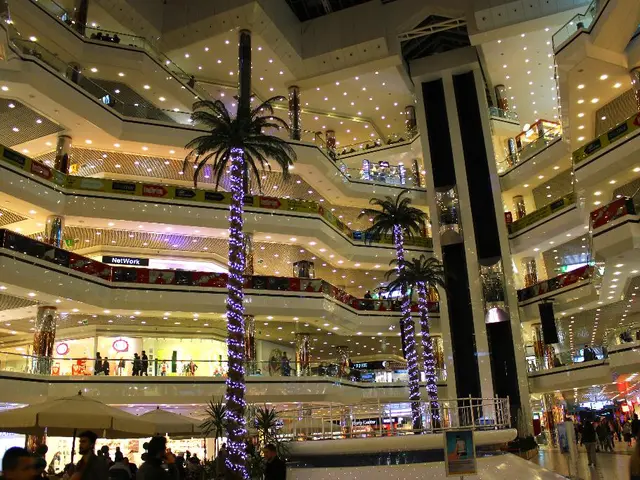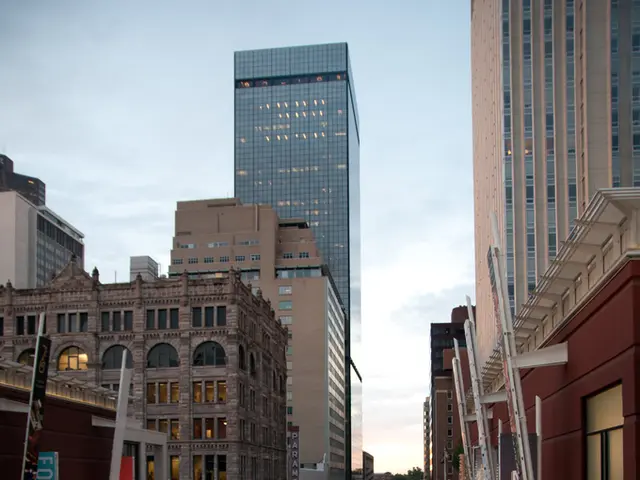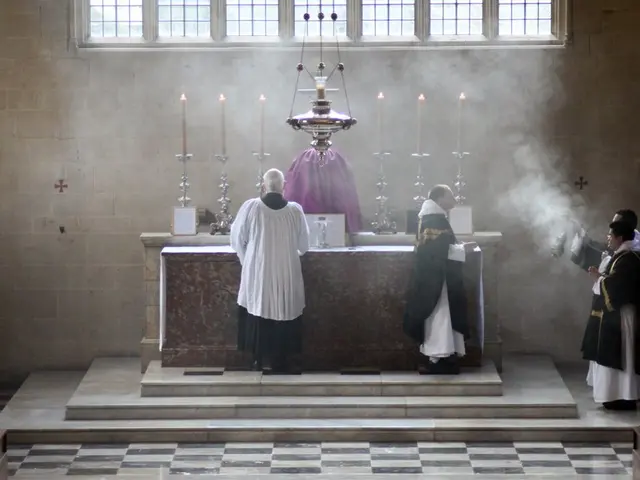Festival Celebrating Bathing Traditions Takes Place in Syktivka, Showcasing Three Baths, Candle Lights, and National Hues
In the heart of Syktyvkar, the III Open Festival of Bathing Culture "Pyvsyanlun" is currently underway, offering a unique opportunity for locals and visitors to immerse themselves in ancient Komi traditions. This year, the festival has moved to a new location, the Kirov Park's city embankment, promising a picturesque backdrop for the celebration.
The festival, created with the aim of preserving, developing, and showcasing Komi national traditions related to bathing culture, has seen an increase in both participants and visitors each year. At the heart of the event is the Bath Park, where guests can partake in a variety of traditional bathing experiences.
This year, Master Vasily Adamchuk has created a wooden sculpture of Pysvyans (Bannik), serving as the festival's guardian. The sculpture is a testament to the Komi's rich cultural heritage and adds a touch of authenticity to the event.
A ritual based on Komi family traditions for Ivan Kupala Day was featured at the festival, providing a glimpse into the Komi's spiritual practices. The festival also aims to engage with the scientific community and enrich the ethnographic material on Komi traditions and rituals.
Visitors can choose from three bath options this year: two for steaming and one for cold paring. Alexei Shcherbakov, a bathmaster, shares that maple brooms are used for steaming, emphasising the importance of a gentle and smooth transition from heat to cold. However, it is worth noting that the specific use of brooms in traditional Komi bathing culture is not extensively documented.
In addition to the bathing experiences, the festival offers a range of interactive features. An interactive feature allows visitors to take a bath at the festival, providing a hands-on experience of Komi traditions.
The cultural programme of the festival is equally rich. The Udmurt folk ensemble "Zarni Shep" and the Belarusian folk song and music ensemble "Khotislavyane" have performed at the festival, adding a musical dimension to the celebrations. A dance circle with Komi elements was introduced this year, replacing last year's Russian one, further highlighting the national focus of the festival.
Ilina Miroshnichenko, Director of the Center for Leisure and Cinema "Oktyabr", stated that the idea to hold the festival was not accidental. She explained that they wanted Syktyvkar to have a folk city holiday, and the Bathing Culture Festival has certainly fulfilled that goal. Miroshnichenko also emphasised the national focus of the festival, showcasing Komi traditions proudly and authentically.
The festival will continue until 20:00, offering plenty of time for visitors to experience the ancient Komi traditions firsthand. For those interested in learning more about traditional bathing practices or steam baths, it might be helpful to explore cultural or historical sources specific to the Komi people or traditional sauna practices.
In a world where modernity often overshadows tradition, the Bathing Culture Festival in Syktyvkar stands as a beacon of cultural preservation and celebration. Whether you're a local or a visitor, the festival offers a unique opportunity to connect with the Komi's rich cultural heritage and immerse yourself in ancient traditions.
The Bathing Culture Festival, with its expanded offerings this year, includes not only traditional bathing experiences but also interactive features that allow visitors to immerse themselves in Komi lifestyle and home-and-garden traditions. Furthermore, the festival's cultural program hosts performances by folk ensembles, such as the Udmurt ensemble "Zarni Shep" and the Belarusian ensemble "Khotislavyane," showcasing the musical aspect of Komi lifestyle and heritage.




